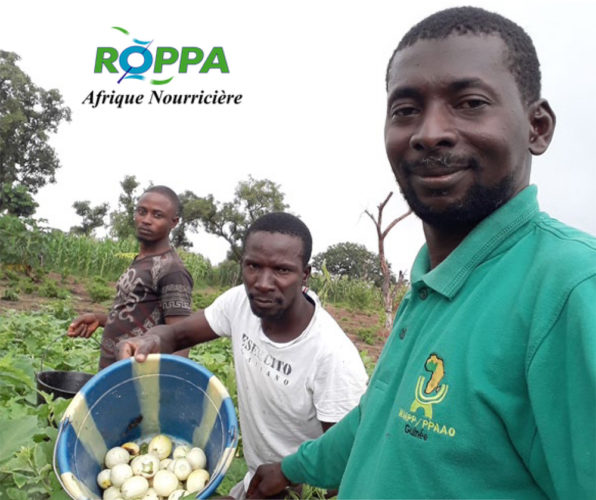The perception of rural West African youth is too often biased by the stereotypes widely conveyed about them. Between precarious odd jobs, idleness and the temptation to move, it is sometimes difficult to envision these young people rooted in their rural community. Too often, we don’t ask:
Who are these young people? What are their stories? How do they fit into their community? What are their ambitions? How do they see their future? What prospects are emerging for their professional integration into family farms?
In a bid to address these issues and many others, the Network of Farmers’ Organizations and Producers of West Africa – ROPPA interviewed young women and men in nine countries of the West African region.
What is evident is the economic and social marginalization of a large number of young people in the rural world, seen in the underemployment of young people, rural exodus, overcrowding in cities, and the rise of new forms of delinquency.
Distraught with the growing loss of interest of their children in their family farms, farming parents fear both for the uncertain future of these young people and for their family farms, which could disappear.
What is less clear is how parents and youth feel about family farming.
ROPPA’s discussions and surveys looked at, among other things, the typology of rural youth and the difficulties of childhood with parents, their trajectories in the quest for knowledge, the particularly difficult condition of the young girl in this journey, the uncertainty of opportunities after studies and family farms as a reference for all.
The study compared the opinions of young people, all born and bred on family farms, with those of parents around the perception of these agricultural production units and life in the rural world.
This research shows the complexity of the relationship of these young people to the family farm and the need to act at different stages of their life course to restore confidence in farming and push them to invest in the agro-forestry, pastoral, and fishery sectors. The ROPPA study further calls for improving youth’s perception of family farming as a framework that can guarantee full development, in order to ensure the sustainability of the production units.
ROPPA’s study highlights the need for autonomy and recognition of these young people and explores the assets and various scenarios that favor their integration for the development of family farms.
It underscores the desire of young rural people to contribute to the development and diversification of the activities of the family farm, while preserving their autonomy through the parallel creation of their own farms, in order to build their life project and fulfill themselves without severing ties with their families.
However, some parents are hostile to the independence of young people who according to them would prefer easy gains, but for many, the presence of young people in the family farm is a guarantee of multidimensional benefits which include the stability of the young person, the continuity of the family business and a guaranteed retirement for parents.
This research was an opportunity for ROPPA to start supporting families by opening reflection and intergenerational dialogue to promote better governance and ease the integration of rural youth into family farms.
The complete result of these meetings, debates and surveys now feature in 2 important booklets entitled ‘West African rural youth’s views on their pathways’ and ‘West African rural youth’s views on family farming’.
Learn more by downloading these booklets from the “Resources” section of this website.


Comments are closed, but trackbacks and pingbacks are open.